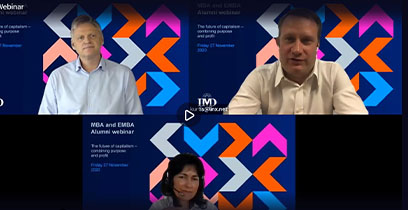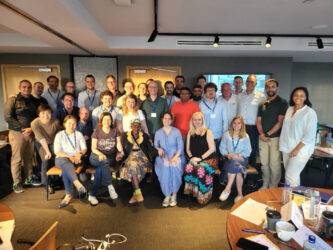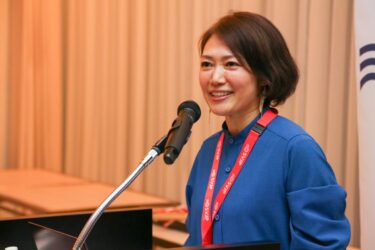
In a landmark 1970 essay in the New York Times, the late Chicago economist, Milton Friedman, declared that “the only social responsibility of business is to increase its profits”. It was a compelling idea: it became the doctrine underpinning western business practices for decades.
Half a century later, times are changing. Now, most businesses recognize the importance of sustainability and many are becoming more socially responsible too.
Marking a new era of purposeful capitalism, BlackRock’s Larry Fink wrote a letter to shareholders in January 2020 stating that, “as governments are failing to prepare for the future, people are looking to companies to deliver not only financial performance, but a positive contribution to society”. He argued this was essential for long-term growth.
In the second edition of IMD’s webinar series, “Business and Society at a Crossroads”, dozens of IMD alumni came together to debate whether shareholder (Friedman), or stakeholder (Fink) capitalism was the right path forward.
The debate was moderated by Knut Haanaes, Professor of Strategy and Lundin Sustainability Chair at IMD. In the famous Oxford Union style, two panelists presented opposing arguments. In his opening statement, Kurt-Erik Lindqvist, an IMD EMBA alumnus and CEO of The London Internet Exchange, took Friedman’s position.
He argued that a company’s sole responsibility is to maximize shareholder value, as long as they follow legal and ethical standards.
He said this goal sometimes coincides with broader societal interests: companies might embrace ethical sourcing to meet shifting consumer demands and to attract the best talent.
“But this is all in support of increasing profits,” he said. And by returning capital to shareholders, he argued they were free to invest in societal causes if they so wish – but executives should not make this decision for them.
Liana Logiurato, an IMD MBA alumna and Partner at EY, sided with Fink. She said that society is placing ever greater demands on businesses to adopt a broader purpose beyond profit: “There is an ongoing shift from shareholder to stakeholder capitalism.”
The time was right, she argued, given the impact of climate change and the coronavirus pandemic that has worsened economic and social inequalities.
The audience was actively engaged with one member asking about the role of governments in all this. Lindqvist said it’s solely the job of politicians to protect society: “The company is not a politically elected organization. We should stop blurring those lines.” He later added that “highly successful companies yield taxes for governments to play their part and deliver on their promises”.
Logiurato countered that this was outdated thinking, adding that trust in governments was low and that companies had to step up to tackle major challenges like the climate crisis. “No one will take away the role of governments and regulators,” she said. “It’s about co-designing where to go. These issues won’t be solved by any one entity in isolation.”
An attendee pointed out that some Big Tech companies were coming under pressure over their tax planning. Lindqvist admitted this could damage brand value and he added that companies sitting on massive overseas cash piles to avoid paying tax on repatriation seemed wasteful.
Logiurato went further, arguing that tax laws could effectively force companies to become more sustainable: “There is the opportunity to rethink how taxation is done and whether the bigger polluters and destroyers of the ecosystem should pay more tax.”
Then, both speakers agreed that companies should focus not on short-term profitability; instead they should have a longer horizon, but they disagreed on the measure of success, with Logiurato saying financial performance alone was not sufficient.
But a participant noted that measuring societal and environmental impact was less straightforward than revenues. In response, Logiurato called for fresh accounting standards that include metrics such as governance, environmental impact and economic prosperity.
But she said that an “alphabet soup” of different frameworks was sowing confusion, and risked slowing the shift to stakeholder capitalism. “The business community is yet to converge on a global standard,” said Logiurato. “We need various constituents to pull their heads together and address the measurement of long term-value, otherwise it will be a fluffy concept.”
One alumnus said that institutional investors are coming under pressure to embrace ESG investing, and wondered whether this could force companies to embrace stakeholder value creation.
Lindqvist in his role as an advocate for Friedman reluctantly agree: “If that is the way the capital markets and investors are going, it is do or die, otherwise you won’t be able to raise capital and return the profits to shareholders.”
In a closing statement, he reiterated his belief in shareholder capitalism, while Logiurato said the challenges facing society are so great that business has to step in.
In an audience poll, the overwhelming majority of alumni agreed with her, suggesting that many business leaders are thinking about a new concept of capitalism.
This chimes with the mission of IMD: to educate leaders who transform organizations and contribute to society.


